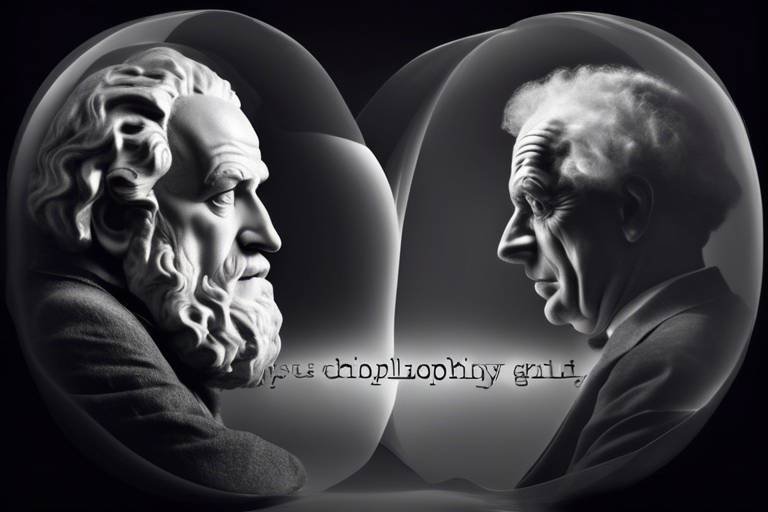The Philosophy Behind Popular Supernatural Phenomena
Throughout history, humanity has been captivated by the **mysterious** and the **unexplainable**. From ghostly apparitions to cryptic symbols, supernatural phenomena have not only intrigued us but have also sparked profound philosophical discussions. These occurrences challenge our understanding of reality and push the boundaries of what we perceive as possible. In this article, we will delve into the rich tapestry of beliefs and interpretations surrounding the supernatural, examining their cultural significance, psychological implications, and the innate human desire to comprehend the unknown.
Belief systems are the lenses through which we interpret the world around us. They shape our understanding of supernatural occurrences and often provide a framework for making sense of the unexplainable. When we encounter a phenomenon that defies logical explanation, our instinct is to seek out meaning. This quest for understanding can lead to a variety of beliefs, from the scientific to the spiritual. But what exactly does it mean to believe in something that cannot be empirically proven? The philosophical implications of such beliefs are profound, raising questions about the nature of reality, truth, and existence itself. Are we simply seeking comfort in the face of uncertainty, or is there something more profound at play? The interplay between belief and skepticism often creates a rich dialogue, pushing us to explore the depths of our understanding.
Different cultures around the world interpret supernatural phenomena in unique ways, influenced by their historical, social, and environmental contexts. This section will highlight some of these interpretations, revealing the philosophical perspectives that emerge from them. For instance, in many Indigenous cultures, supernatural events are often seen as manifestations of the spiritual world, deeply intertwined with daily life and community rituals. Conversely, Western cultures may approach the supernatural with a more skeptical lens, often seeking scientific explanations for phenomena that seem inexplicable. These varying interpretations underscore the complexity of human belief and the ways in which our cultural backgrounds shape our understanding of the supernatural.
Mythology serves as a crucial framework for understanding supernatural events. It provides narratives that help explain the inexplicable, offering insight into the human psyche and societal values. Myths often convey moral lessons, reflecting the philosophical beliefs of cultures regarding good and evil, fate, and human nature. For example, the tale of Icarus warns against hubris, illustrating the consequences of overreaching ambition. Such stories serve not only as entertainment but also as moral compasses, guiding individuals in their understanding of right and wrong.
Many myths are rich with moral lessons that resonate across generations. They embody the philosophical beliefs of cultures, addressing fundamental questions about existence and morality. For instance, in ancient Greek mythology, the story of Pandora's box teaches about the dangers of curiosity and the importance of restraint. These narratives serve as cautionary tales, encouraging individuals to reflect on their actions and their consequences. The philosophical implications of these myths extend beyond mere storytelling; they invite us to ponder our own values and the nature of human experience.
Supernatural stories often contain layers of symbolism, revealing deeper philosophical meanings about existence, morality, and the universe. Take, for example, the concept of ghosts. They can symbolize unresolved issues, representing the parts of ourselves that we have yet to confront. Similarly, mythical creatures often embody human traits or societal fears, acting as metaphors for our struggles and aspirations. By analyzing these symbols, we can gain insights into our collective consciousness and the philosophical questions that haunt us.
The belief in the supernatural can have significant psychological implications. For many, these beliefs provide comfort in times of distress, offering a sense of control in an unpredictable world. However, they can also lead to anxiety and fear, particularly when individuals feel powerless against forces they cannot understand. Understanding the psychological impact of these beliefs is crucial, as they can shape behavior and influence mental health. Engaging with the supernatural can be a double-edged sword—while it can foster a sense of community and belonging, it can also lead to isolation and fear of the unknown.
The ongoing debate between scientific explanations and supernatural beliefs raises profound philosophical questions. On one hand, empiricism emphasizes evidence-based understanding, often challenging supernatural claims. On the other hand, skepticism encourages critical thinking about the unknown, prompting us to question the limits of our understanding. This conflict between science and belief is not merely a battle of facts; it is a philosophical inquiry into the nature of reality itself. Are there phenomena that lie beyond the reach of scientific inquiry? What does it mean to accept that some things may remain a mystery?
Empiricism, grounded in observation and experimentation, often clashes with supernatural beliefs that defy logical explanation. This tension invites us to explore the boundaries of knowledge and understanding. Skepticism, on the other hand, encourages us to question our assumptions and remain open to new possibilities. This philosophical stance fosters a culture of inquiry, challenging us to explore the unknown while remaining grounded in evidence.
Accepting the limits of human understanding is a humbling yet liberating philosophical stance. It allows us to embrace the mysteries of existence without the need for definitive answers. Some phenomena may indeed remain beyond our comprehension, and acknowledging this can lead to a deeper appreciation for the complexity of the universe. This acceptance can foster a sense of wonder and curiosity, encouraging us to explore the unknown rather than fear it.
At the core of human existence is the quest for meaning. Supernatural beliefs often provide answers to existential questions, offering comfort and a sense of purpose in the face of uncertainty. These beliefs can help us navigate life's challenges, providing a framework for understanding our place in the universe. Rituals associated with supernatural beliefs can serve as powerful expressions of philosophical ideas, fostering community connections and reinforcing shared values.
Supernatural beliefs often emerge in response to existential questions about life, death, and the nature of reality. They provide a narrative that helps us make sense of our experiences, offering solace in times of grief and uncertainty. In a world filled with chaos, these beliefs can act as anchors, grounding us in a shared understanding of existence.
Rituals associated with supernatural beliefs can serve as a means to express philosophical ideas and foster community connections. They create a sense of belonging, allowing individuals to share their experiences and beliefs. Whether through religious ceremonies or cultural traditions, these rituals reinforce the values and beliefs that shape our understanding of the supernatural.
- What are supernatural phenomena? Supernatural phenomena refer to events or experiences that cannot be explained by natural laws or scientific understanding.
- Why do people believe in the supernatural? People often believe in the supernatural to find meaning, cope with uncertainty, or connect with cultural traditions.
- How do different cultures interpret supernatural events? Different cultures have unique interpretations of supernatural events, influenced by historical, social, and environmental factors.
- What is the relationship between mythology and the supernatural? Mythology provides narratives that help explain supernatural events, reflecting cultural values and philosophical beliefs.
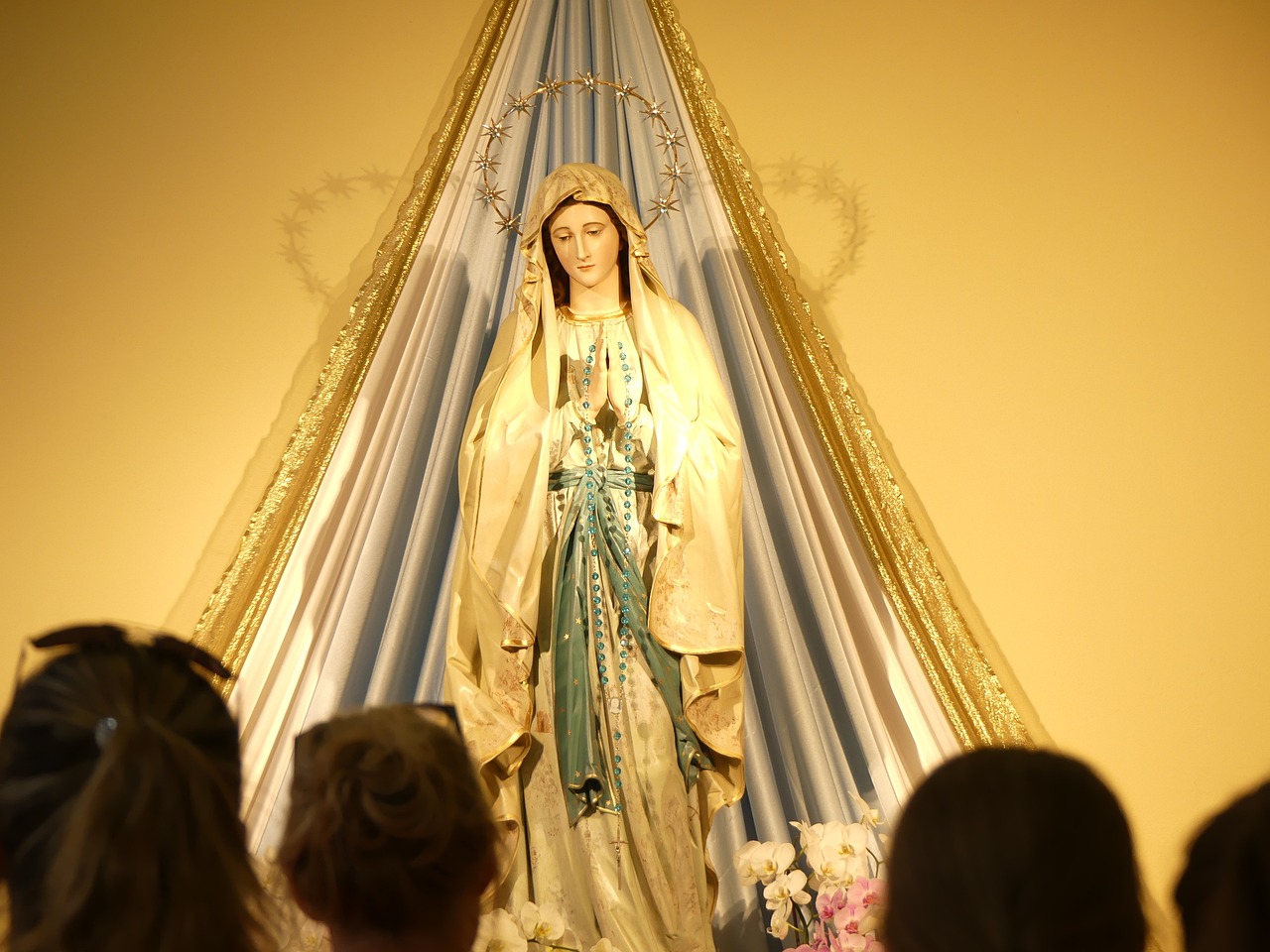
The Nature of Belief
Belief systems are like the lenses through which we view the world, shaping our understanding of everything from the mundane to the supernatural. When it comes to supernatural occurrences, these beliefs can be incredibly powerful, influencing how we interpret experiences that defy explanation. Have you ever wondered why some people firmly believe in ghosts while others dismiss them as mere figments of imagination? This divergence often stems from the philosophical underpinnings of belief itself, which can be deeply rooted in cultural backgrounds, personal experiences, and even psychological needs.
At its core, belief is a complex interplay of emotion, cognition, and social influence. It often serves as a coping mechanism in the face of uncertainty. For instance, when confronted with the inexplicable, many individuals turn to supernatural explanations as a way to make sense of their experiences. This tendency can be traced back to our ancestors, who relied on myths and legends to explain natural phenomena that were beyond their comprehension. In this sense, belief in the supernatural can be seen as a fundamental aspect of the human condition—a way to confront our fears and the unknown.
Furthermore, the philosophical implications of belief extend beyond mere acceptance of the supernatural. They challenge us to question the nature of reality itself. Are we merely products of our environment, or do we possess the agency to shape our beliefs? This philosophical inquiry can lead to a deeper understanding of our place in the universe. For example, consider the following points:
- Belief as Identity: Our beliefs often become intertwined with our identities. For many, believing in the supernatural can provide a sense of belonging to a larger community.
- Belief and Reality: The question arises: does believing in something make it real? Philosophers like Descartes have pondered this, leading to the famous assertion, "I think, therefore I am."
- Challenge of Skepticism: Skeptics argue that belief in the supernatural can lead to cognitive biases, where personal experiences overshadow empirical evidence.
In essence, the nature of belief is multifaceted. It serves not only as a reflection of our understanding of the supernatural but also as a mirror that reveals our innermost thoughts and feelings about existence. As we navigate through life, our beliefs can provide comfort, community, and a framework for interpreting the world around us. However, they can also lead to conflict, especially when differing beliefs collide. This dynamic tension between belief and skepticism is what makes the exploration of supernatural phenomena so fascinating.
Ultimately, the philosophy behind belief invites us to consider the deeper questions of existence. Are our beliefs merely constructs of our minds, or do they hold a truth that transcends our understanding? As we delve into the realm of the supernatural, we must remain open to the possibilities that lie beyond the veil of the known. After all, the quest for understanding the unexplainable is a journey that has captivated humanity for centuries.
Q: Why do some people believe in supernatural phenomena?
A: Beliefs in supernatural phenomena often arise from cultural influences, personal experiences, and psychological needs for understanding and comfort in the face of uncertainty.
Q: How do belief systems impact our understanding of reality?
A: Belief systems shape our perceptions and interpretations of experiences, often influencing how we react to the unknown and the unexplainable.
Q: Can belief in the supernatural have psychological effects?
A: Yes, belief in the supernatural can provide comfort and a sense of purpose, but it can also lead to cognitive biases and conflicts with empirical evidence.
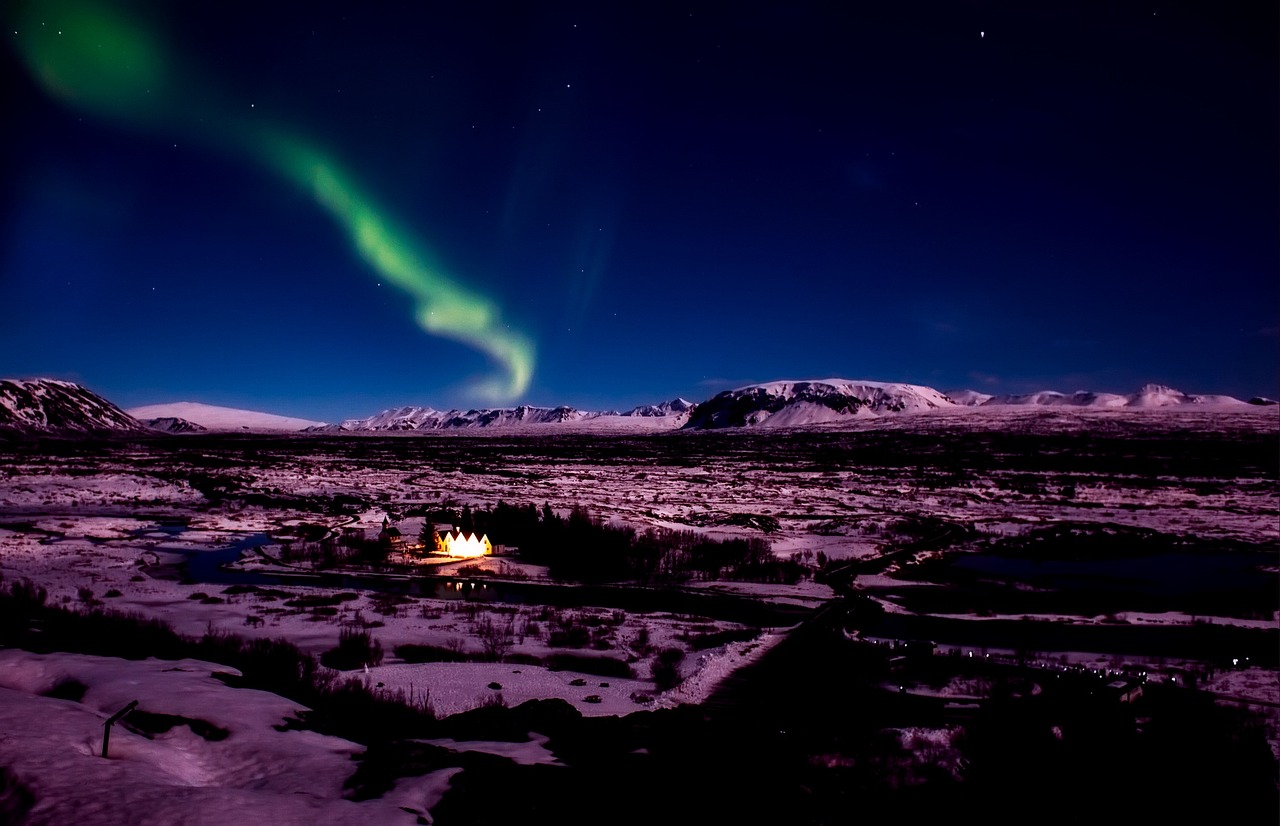
Cultural Interpretations of the Supernatural
The way we interpret the supernatural is deeply rooted in our cultural backgrounds, shaping our perceptions and beliefs. Across the globe, different cultures have developed unique frameworks to understand supernatural phenomena, often reflecting their historical, social, and environmental contexts. For instance, in many Indigenous cultures, the supernatural is intertwined with nature, where spirits of the land, animals, and ancestors are revered. This connection fosters a profound respect for the environment, illustrating how cultural interpretations can influence our relationship with the world around us.
In contrast, Western cultures often view the supernatural through a lens of skepticism and rationality. The rise of science has led to a questioning of traditional beliefs, creating a dichotomy between faith and empirical evidence. Yet, even within these skeptical frameworks, the supernatural still finds a way to seep into popular culture, from ghost stories to urban legends. This duality raises intriguing philosophical questions about the nature of belief and the human experience. Are we hardwired to seek out the supernatural as a way to cope with the unknown, or is it merely a byproduct of our imaginative faculties?
One fascinating aspect of cultural interpretations of the supernatural is the role of mythology. Myths serve not only as stories but also as vehicles for conveying societal values and beliefs. They often provide a moral compass, guiding individuals through the complexities of life. For example, in Greek mythology, the tales of gods and heroes reflect the ancient Greeks' understanding of human nature, morality, and the cosmos. These stories resonate with us even today, as they explore themes of love, betrayal, and redemption—universal experiences that transcend time and culture.
Mythology often serves as a framework for understanding supernatural events, offering insight into the human psyche and societal values. Myths are not just fanciful tales; they encapsulate profound truths about existence and morality. They provide a lens through which we can examine our own lives and the choices we make. By analyzing these narratives, we can uncover the philosophical beliefs of cultures regarding good and evil, fate, and human nature.
Many myths convey moral lessons, reflecting the philosophical beliefs of cultures regarding good and evil, fate, and human nature. For instance, the story of Pandora's box in Greek mythology serves as a cautionary tale about curiosity and the consequences of one's actions. It teaches us that while seeking knowledge can be a noble pursuit, it can also lead to unforeseen repercussions. Such narratives resonate across generations, shaping our moral framework and guiding our behavior in society.
Supernatural stories often contain rich symbolism, revealing deeper philosophical meanings about existence, morality, and the universe. Take, for example, the concept of ghosts in various cultures. In many traditions, ghosts symbolize unresolved issues or unfinished business, serving as a reminder of the importance of closure in our lives. This symbolism invites us to reflect on our own experiences and the legacies we leave behind. It prompts us to ask ourselves: what do we want to be remembered for? The interplay of symbolism and supernatural beliefs enriches our understanding of the human condition, encouraging introspection and growth.
In conclusion, cultural interpretations of the supernatural are as diverse as humanity itself. They shape our beliefs, influence our behaviors, and offer insight into the philosophical questions that have puzzled us for centuries. By exploring these interpretations, we not only gain a deeper appreciation for the richness of human experience but also confront the fundamental questions that define our existence.
- What is the significance of mythology in understanding the supernatural?
Mythology provides a framework for interpreting supernatural events, reflecting cultural values and offering moral lessons that resonate across generations. - How do cultural beliefs influence perceptions of the supernatural?
Cultural beliefs shape our understanding of supernatural phenomena, often dictating whether we view them with reverence, skepticism, or curiosity. - Can supernatural beliefs have psychological effects?
Yes, belief in the supernatural can influence mental health, providing comfort in times of uncertainty while also leading to anxiety or fear in others.
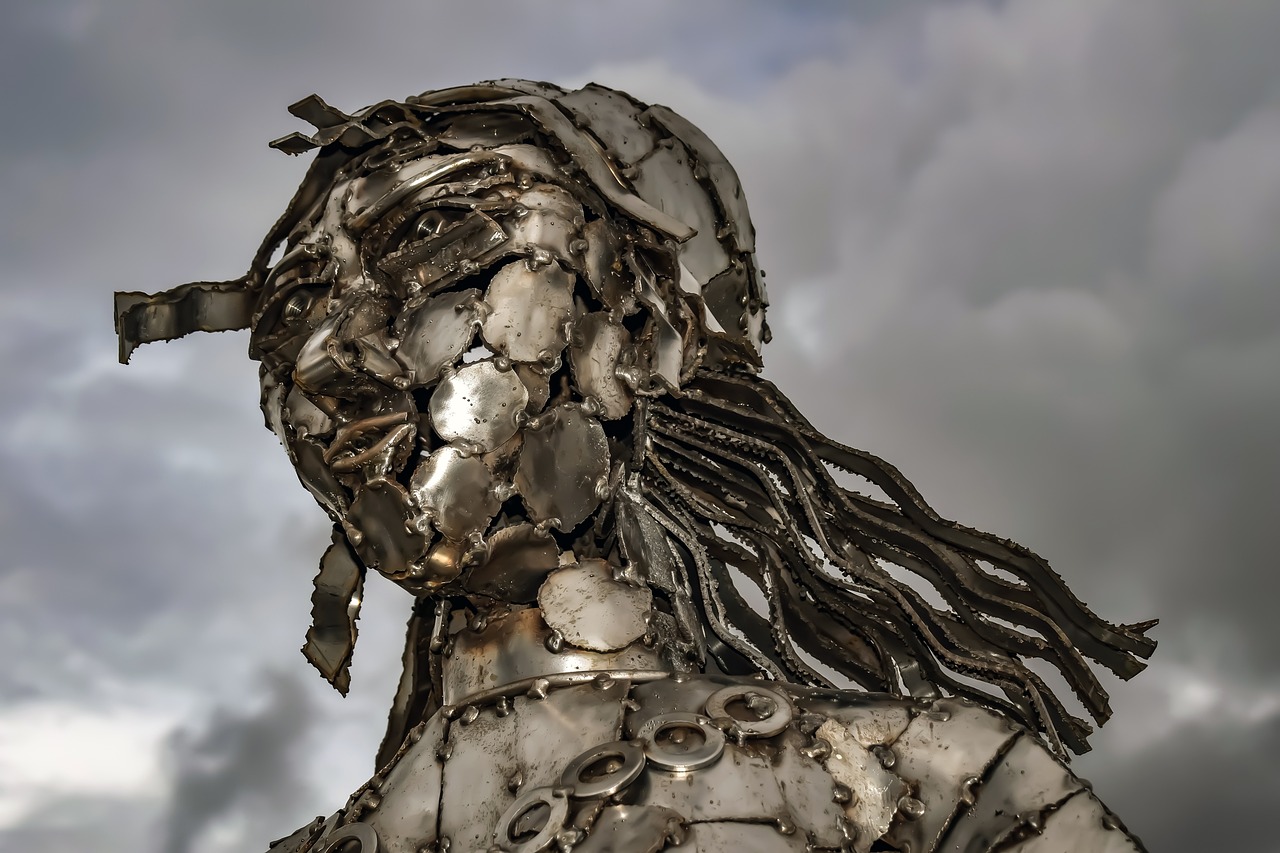
The Role of Mythology
Mythology plays a crucial role in the way we interpret and understand supernatural phenomena. It acts as a lens through which cultures view their world, providing narratives that help explain the unexplainable. Think of mythology as a vast tapestry, woven with threads of stories, beliefs, and values that reflect the collective psyche of a society. These stories are not just fanciful tales; they are deeply rooted in the experiences and struggles of the people who tell them. By exploring these narratives, we can gain insight into the philosophical beliefs that underpin them.
At its core, mythology serves several essential functions. It helps to:
- Explain the Unknown: Myths provide explanations for natural phenomena that were once mysterious, such as the changing seasons or the existence of death. For instance, ancient cultures often created myths about gods controlling the weather, giving them a sense of control over their environment.
- Reflect Social Values: Myths often encapsulate the moral values and norms of a society. They can serve as cautionary tales, imparting lessons about right and wrong, and guiding individuals in their behavior.
- Foster Community Identity: Shared myths can create a sense of belonging among individuals within a culture. They bind people together through common stories and shared beliefs, reinforcing cultural identity.
Moreover, mythology is rich with symbolism, which adds layers of meaning to the stories. For example, the hero's journey, a common motif in many myths, symbolizes the struggle of individuals to overcome obstacles and achieve personal growth. This journey often reflects deeper philosophical questions about existence, morality, and the nature of humanity. The hero’s trials and tribulations can mirror our own life challenges, making these myths relatable and timeless.
In addition, mythology often addresses profound questions about the human condition. Why do we suffer? What happens after we die? By presenting supernatural beings and forces, myths provide answers to these existential questions, offering comfort and a framework for understanding our place in the universe. They invite us to ponder our existence and the mysteries that surround us, ultimately enriching our philosophical inquiries.
To illustrate the significance of mythology in understanding the supernatural, consider the following table that highlights some prominent myths from various cultures and their philosophical implications:
| Myth | Culture | Philosophical Implication |
|---|---|---|
| Prometheus | Greek | The struggle for knowledge and the consequences of defiance |
| Raven and the First Men | Native American | The interconnectedness of life and creation |
| Osiris | Egyptian | The cycle of life, death, and rebirth |
| Hercules | Greek | The quest for redemption and the nature of heroism |
In conclusion, mythology is not merely a collection of ancient stories; it is a powerful tool for understanding the supernatural and our place within it. By examining the myths of different cultures, we can uncover the philosophical beliefs that shape our understanding of existence, morality, and the universe itself. This exploration not only enriches our knowledge but also deepens our connection to the shared human experience.
- What is the significance of mythology in modern society? Mythology continues to influence contemporary culture, shaping literature, art, and even psychology. It offers timeless insights into human behavior and societal values.
- How do myths help us cope with existential questions? Myths provide narratives that address life's uncertainties, offering comfort and a framework for understanding complex issues like death and morality.
- Can mythology be considered a form of philosophy? Yes, mythology often explores philosophical themes and questions, making it a valuable source for philosophical inquiry.

Myths as Moral Lessons
Myths have long been a fundamental aspect of human culture, serving not just as entertaining stories but as profound moral lessons that reflect the values and beliefs of the societies that create them. These narratives often encapsulate the essence of what it means to be human, addressing themes such as good and evil, justice, and the consequences of one's actions. By examining these myths, we can uncover the philosophical underpinnings that guide human behavior and societal norms.
Take, for instance, the tale of Prometheus from Greek mythology. His act of stealing fire from the gods and giving it to humanity represents the eternal struggle between knowledge and ignorance. While Prometheus's intentions were noble, his actions led to dire consequences, illustrating the moral lesson that knowledge can be both a gift and a curse. This duality prompts us to reflect on our own pursuits of knowledge and the responsibilities that come with it.
Moreover, myths often serve as a canvas for exploring the complexities of human nature. In many cultures, stories about tricksters—like Hermes or the Coyote in Native American folklore—highlight the importance of cunning and adaptability in the face of adversity. These characters often embody the idea that life is not just about adhering to rules but also about navigating the gray areas of morality. They teach us that sometimes, bending the rules can lead to innovative solutions, a lesson that resonates deeply in our modern world.
Additionally, myths frequently address the concept of fate versus free will. The story of Oedipus serves as a poignant reminder of how our attempts to escape our destined paths can lead us right into them. This paradox raises philosophical questions about the extent to which we control our lives versus being subject to larger forces. Such narratives encourage us to ponder our own choices and the implications they have on our lives and those around us.
In essence, myths are not merely relics of the past; they are living texts that continue to shape our moral landscape. They invite us to explore our own beliefs and values, providing a framework for understanding the complexities of human existence. By engaging with these stories, we not only connect with our cultural heritage but also gain insights into the universal challenges that define the human experience.
- What are moral lessons in myths? Moral lessons in myths are teachings derived from stories that reflect the values and ethical principles of a culture.
- How do myths influence modern society? Myths influence modern society by shaping cultural narratives, values, and ethical considerations that guide behavior and decision-making.
- Can myths provide answers to contemporary issues? Yes, myths can offer insights and perspectives that help individuals navigate modern dilemmas by reflecting on timeless human experiences.

Symbolism in Supernatural Stories
When we dive into the realm of supernatural stories, we often find ourselves surrounded by a rich tapestry of symbolism that serves as a bridge between the known and the unknown. These narratives, whether they come from ancient folklore or modern urban legends, are laden with symbols that convey deeper meanings about our existence, morality, and the universe itself. For instance, the presence of ghosts in a story might symbolize unresolved issues, while a haunted house could represent the psychological state of its inhabitants. The beauty of these symbols is that they resonate with our personal experiences, evoking emotions and reflections that go beyond the surface level of the tale.
Consider the classic tale of Dracula, where the vampire serves as a multifaceted symbol. On one hand, he represents the fear of the unknown and the otherworldly, but on another, he embodies the struggle between civilization and primal instincts. This duality speaks volumes about human nature and our constant battle with our darker impulses. Similarly, in many cultures, the werewolf symbolizes the transformation that occurs when one succumbs to their baser instincts, illustrating the philosophical idea that we all have a beast within us, waiting to emerge under the right circumstances.
Moreover, supernatural symbols often reflect societal values and fears. For example, the zombie can be seen as a representation of societal decay and the fear of losing one's identity in a conformist world. This is particularly relevant in contemporary discussions about consumerism and the loss of individuality. By examining these symbols, we can gain insight into the collective psyche of a culture at a given time, revealing what they cherish, what they fear, and how they see themselves in relation to the world around them.
In addition to exploring individual stories, it's fascinating to observe how symbols in supernatural narratives can create a universal language. Across different cultures, similar themes emerge, such as the hero's journey, the battle between good and evil, and the quest for knowledge. These recurring symbols and motifs allow us to connect with others, transcending cultural boundaries and inviting us to ponder profound questions about our shared humanity. They challenge us to think critically about our beliefs and the implications of those beliefs on our lives.
To illustrate the power of symbolism in supernatural stories, consider the following table that highlights some common supernatural symbols and their philosophical interpretations:
| Symbol | Interpretation |
|---|---|
| Ghosts | Unresolved issues or lingering emotions |
| Vampires | Fear of the unknown, struggle with primal instincts |
| Werewolves | Transformation and the duality of human nature |
| Zombies | Societal decay, loss of individuality |
Ultimately, the symbolism found in supernatural stories serves as a mirror reflecting our deepest fears, hopes, and philosophical inquiries. They challenge us to confront the unknown and explore the complexities of existence. By engaging with these narratives, we not only entertain ourselves but also embark on a journey of self-discovery and understanding. So the next time you find yourself engrossed in a supernatural tale, take a moment to ponder the symbols at play and what they reveal about our collective human experience.
- What is symbolism in supernatural stories? Symbolism in supernatural stories refers to the use of symbols to convey deeper meanings and themes, often reflecting human emotions, societal values, and philosophical inquiries.
- How do symbols enhance the understanding of supernatural narratives? Symbols provide layers of meaning that invite readers to explore complex ideas about existence, morality, and the human experience, making the stories more impactful and thought-provoking.
- Can symbols in supernatural stories vary across cultures? Yes, symbols can vary significantly across cultures, but many themes are universal, allowing for connections and insights that transcend cultural boundaries.

Psychological Perspectives
When we dive into the realm of the supernatural, we often find ourselves grappling with not just the phenomena themselves but also the psychological frameworks that support our beliefs in them. Have you ever wondered why some people find solace in ghost stories while others dismiss them as mere fiction? The answer lies in our psychology—our minds are wired to seek patterns, explanations, and comfort in the unknown. This search for understanding can lead to a range of psychological responses, from fascination to fear, and even a profound sense of connection to something greater than ourselves.
One of the most intriguing aspects of supernatural beliefs is their potential impact on mental health. For some individuals, believing in the supernatural can provide a coping mechanism in times of distress. Consider the following points:
- Comfort in Uncertainty: Supernatural beliefs often offer explanations for life's mysteries, allowing individuals to navigate uncertainty with a sense of security.
- Community and Belonging: Sharing supernatural beliefs can foster a sense of community, providing social support that is crucial for mental well-being.
- Exploration of Identity: Engaging with supernatural concepts can help individuals explore their own identities and beliefs, leading to personal growth.
On the flip side, the psychological implications of supernatural beliefs can also lead to negative outcomes. For example, an intense fixation on supernatural phenomena might result in anxiety or paranoia. People might become so engrossed in the idea of ghosts or otherworldly beings that they start to perceive them in everyday life, leading to heightened fear and stress. This phenomenon can be particularly pronounced in individuals who already struggle with anxiety disorders or other mental health issues.
Moreover, the way we interpret supernatural experiences can be deeply influenced by our personal history and cultural background. For instance, someone raised in a culture rich in folklore might be more inclined to interpret unusual experiences as supernatural encounters, while a person from a more skeptical background may dismiss the same experiences as coincidences or misinterpretations. This subjective lens through which we view the supernatural reveals much about our psychological makeup and the values instilled in us from a young age.
In essence, the psychological perspectives surrounding supernatural beliefs are as varied as the beliefs themselves. They can serve as a double-edged sword—providing comfort and community for some, while fostering anxiety and fear for others. Understanding these dynamics not only enriches our grasp of human psychology but also highlights the intricate relationship between belief, culture, and mental health.
- What are the psychological benefits of believing in the supernatural?
Believing in the supernatural can provide comfort during uncertain times, foster community connections, and encourage personal exploration. - Can supernatural beliefs lead to mental health issues?
Yes, an intense focus on supernatural phenomena can result in anxiety or paranoia, especially for those with pre-existing mental health conditions. - How do cultural backgrounds influence supernatural beliefs?
Cultural upbringing significantly shapes how individuals interpret and engage with supernatural occurrences, often leading to different perspectives on the same experiences.

The Science vs. Supernatural Debate
When it comes to the age-old clash between science and the supernatural, one might feel as if they are caught in a cosmic tug-of-war. On one side, we have the rigorous methodologies of science, which rely on empirical evidence and observable phenomena. On the other side, the supernatural realm beckons with its mysteries and unexplainable occurrences, often rooted in deep-seated beliefs and cultural narratives. This debate is not merely academic; it touches on our very understanding of reality and our place within it. So, what happens when empirical evidence meets the ethereal? Let's dive deeper into this fascinating conflict.
At the heart of this debate lies a fundamental question: Can science truly explain everything? Empiricism, the philosophical stance that knowledge comes primarily from sensory experience, challenges supernatural claims by demanding proof. For instance, when someone claims to have seen a ghost, science seeks to understand the experience through psychology, environmental factors, or even neurological responses. However, this approach can sometimes feel dismissive to those who hold supernatural beliefs dear, as it often overlooks the emotional and cultural significance these experiences can embody. The tension between these two ways of knowing can be likened to trying to fit a square peg into a round hole; they simply operate on different planes of understanding.
Moreover, skepticism plays a crucial role in this discourse. It encourages critical thinking and questioning of the unknown, pushing us to seek rational explanations. But what about the aspects of life that elude empirical scrutiny? The limits of human understanding often come into play, suggesting that some phenomena may remain forever beyond our grasp. This notion can be unsettling, leading to the philosophical implications that perhaps not everything can be neatly categorized or understood. In fact, many scientists acknowledge the mysteries that still exist, which can lead to a sense of wonder akin to spiritual awe.
To illustrate this point, consider the following table that contrasts the perspectives of science and supernatural beliefs:
| Aspect | Science | Supernatural |
|---|---|---|
| Basis of Understanding | Empirical evidence | Belief and tradition |
| Approach to Phenomena | Observation and experimentation | Intuition and faith |
| Acceptance of Mystery | Strives for clarity | Embraces the unknown |
| Response to Anomalies | Seeks explanations | Finds meaning |
This table highlights the contrasting approaches to understanding the world around us. While science seeks to demystify and explain, the supernatural often invites us to find meaning in the inexplicable. This dichotomy raises further questions: Is it possible to reconcile these two perspectives? Can we embrace the wonder of the supernatural while still valuing the insights provided by science?
Ultimately, the science vs. supernatural debate is more than just a battle of facts and beliefs; it’s a reflection of our human condition. We are curious beings, constantly seeking answers to existential questions. Whether we turn to science for clarity or to the supernatural for comfort, we are engaging in a search for understanding that is deeply rooted in our nature. So, as we navigate this complex landscape, perhaps the most profound realization is that both realms can coexist, each offering unique insights into the mysteries of life.
- What is the main difference between science and supernatural beliefs? Science relies on empirical evidence and observation, while supernatural beliefs are often based on faith and cultural traditions.
- Can science explain all supernatural phenomena? While science seeks to explain many phenomena, some experiences may remain beyond empirical understanding.
- How does skepticism fit into the debate? Skepticism encourages questioning and critical thinking, which can challenge supernatural claims while also fostering a deeper understanding of the unknown.
- Is it possible to reconcile science and supernatural beliefs? Yes, many find value in both perspectives, using science for clarity and supernatural beliefs for meaning.

Empiricism and Skepticism
When we talk about empiricism, we're diving into a philosophy that champions observation and experience as the primary sources of knowledge. Think of it as the scientific method's best friend. Empiricists argue that knowledge should be grounded in what we can see, hear, and measure. This approach often puts them at odds with supernatural beliefs, which frequently rely on faith, anecdotal evidence, or personal experiences that cannot be universally verified. For instance, when someone claims to have seen a ghost, an empiricist would ask for tangible evidence—like a video or a physical footprint—before accepting that claim as valid.
On the flip side, we have skepticism, which is all about questioning and doubting accepted norms. Skeptics don't just take things at face value; they dig deeper, always asking, “Is there more to this story?” This mindset can be incredibly beneficial when navigating the murky waters of supernatural claims. After all, if we blindly accept everything we hear, we might end up lost in a maze of misconceptions. Skeptics often remind us that extraordinary claims require extraordinary evidence. This perspective doesn’t outright dismiss supernatural phenomena; rather, it encourages a critical examination of the evidence presented.
But what happens when empiricism and skepticism encounter the supernatural? It creates a fascinating tension. On one hand, we have the desire to understand the unknown, to explore the mysteries that lie beyond our current knowledge. On the other, there’s a cautionary voice urging us to remain grounded, to avoid jumping to conclusions without adequate proof. This tug-of-war can lead to some heated debates, especially in social circles where beliefs about the supernatural run deep.
In many ways, this philosophical conflict mirrors the age-old struggle between science and religion. Just as some religious beliefs may clash with scientific discoveries, so too do supernatural claims often find themselves scrutinized by empiricists and skeptics alike. It raises important questions about the nature of reality, belief, and the limits of human understanding. Are there things that simply cannot be explained by science? And if so, does that mean we should accept them as real? Or should we remain skeptical, demanding proof before we embrace the unexplainable?
Ultimately, the interplay between empiricism and skepticism not only shapes our understanding of the supernatural but also reflects our broader human experience. It urges us to seek knowledge while remaining open to the mysteries of life. As we navigate this complex landscape, we must remember that while evidence is crucial, the human experience is often enriched by the very questions that defy easy answers.
As we ponder these philosophical inquiries, it's essential to recognize that both empiricism and skepticism play vital roles in our quest for understanding. They challenge us to think critically, to question our beliefs, and to remain curious about the world around us. In doing so, they foster a deeper appreciation for both the mysteries we encounter and the knowledge we strive to attain.
- What is empiricism? Empiricism is a philosophical stance that emphasizes knowledge gained through sensory experience and observation.
- How does skepticism relate to supernatural beliefs? Skepticism encourages questioning and critical examination of claims, including those related to the supernatural.
- Can supernatural phenomena be proven scientifically? Many supernatural claims lack empirical evidence, making them difficult to validate using scientific methods.
- Why is it important to balance empiricism and skepticism? Balancing these philosophies helps us navigate complex issues and encourages a deeper understanding of both the known and the unknown.

The Limits of Human Understanding
When we dive into the vast ocean of knowledge, we often find ourselves grappling with the limits of human understanding. Imagine trying to grasp the infinite complexity of the universe with a mere handful of tools. It's like trying to catch a wave with a net; no matter how skilled you are, some things will always slip through your fingers. This struggle is especially pronounced when it comes to supernatural phenomena, which challenge our perceptions and push the boundaries of what we believe is possible.
At the core of this dilemma lies the philosophical question: What can we truly know? Throughout history, thinkers like Plato and Kant have pondered the nature of knowledge, suggesting that our understanding is often clouded by subjective experiences and societal constructs. In the realm of the supernatural, this becomes even more complicated. For example, consider how different cultures interpret events like ghost sightings or miraculous healings. Each interpretation is colored by cultural beliefs, personal experiences, and even historical context, leading to a myriad of explanations that often contradict one another.
Moreover, the limitations of human cognition play a significant role in how we perceive the supernatural. Our brains are wired to make sense of the world around us, yet they can only process a fraction of the information presented to us. This leads to a reliance on heuristics and cognitive biases, which can distort our understanding. For instance, the phenomenon of pareidolia—seeing faces in clouds or patterns in random stimuli—illustrates how our minds are predisposed to find meaning, even when none exists. This tendency can lead to a belief in the supernatural, as we attempt to fill the gaps in our understanding with narratives that resonate with our experiences.
Philosophically, this raises poignant questions about the nature of reality and existence. If our understanding is inherently limited, how can we claim to know anything about the supernatural? Some argue that this is where faith steps in; it fills the void left by our limited comprehension. However, this brings us to another critical point: the tension between faith and reason. While faith offers comfort and a sense of belonging, relying solely on it can lead to dogmatism, where individuals dismiss evidence that contradicts their beliefs. This is a delicate balance that many grapple with as they navigate their understanding of the supernatural.
Ultimately, the limits of human understanding remind us that some phenomena may remain forever beyond our grasp. This acknowledgment can be both humbling and liberating. It invites us to embrace the mystery of existence and consider the possibility that not everything requires a rational explanation. In fact, the very act of questioning can be a source of meaning in itself. By accepting that some mysteries may never be solved, we open ourselves up to a deeper appreciation of the unknown, allowing our imaginations to explore realms that logic cannot reach.
- What are the main philosophical questions regarding supernatural phenomena? Philosophical inquiries often focus on the nature of reality, the limits of human understanding, and the relationship between faith and reason.
- How do cultural interpretations affect beliefs in the supernatural? Cultural backgrounds shape the way individuals interpret supernatural events, leading to diverse beliefs and practices.
- Can belief in the supernatural have psychological benefits? Yes, belief in the supernatural can provide comfort, a sense of purpose, and a framework for understanding life's mysteries.
- What role does mythology play in understanding the supernatural? Mythology often serves as a lens through which cultures interpret supernatural occurrences, embedding moral and existential lessons within these narratives.

The Search for Meaning
In a world that often feels chaotic and unpredictable, the search for meaning is a fundamental aspect of the human experience. We all grapple with profound questions about our existence, our purpose, and what lies beyond the veil of the known. This quest often leads individuals to supernatural beliefs, which can provide a framework for understanding life's mysteries. Have you ever wondered why some people turn to the supernatural when faced with uncertainty? It's because these beliefs offer answers—however enigmatic they may be—to questions that science and logic sometimes fail to address.
Supernatural beliefs can act as a comforting balm for the existential dread that accompanies the human condition. They allow individuals to make sense of their experiences and provide a sense of control in an unpredictable world. For many, the idea of a higher power or supernatural forces at play brings solace during times of hardship. This connection to the supernatural can fulfill several existential needs:
- Comfort in Uncertainty: When life throws curveballs, believing in something greater can be reassuring.
- Community and Belonging: Supernatural beliefs often foster a sense of community, bringing people together through shared rituals and traditions.
- Framework for Morality: Many supernatural beliefs provide guidelines on how to live a good life, shaping moral values and societal norms.
Moreover, the rituals associated with these beliefs play a crucial role in expressing and reinforcing philosophical ideas. From ancient ceremonies to modern spiritual practices, rituals serve as a tangible way to connect with the supernatural. They offer a sense of continuity and tradition, linking individuals to their cultural heritage and to each other. Think about it: when we participate in rituals, we are not just performing actions; we are engaging in a profound expression of our beliefs and values.
In essence, the search for meaning through supernatural beliefs is a reflection of our innate desire to understand our place in the universe. It is a journey that transcends cultures and time, demonstrating that regardless of our backgrounds, we all seek answers to the same fundamental questions. As we navigate this complex landscape of belief and understanding, we find that the supernatural is not just a realm of the fantastical; it is deeply intertwined with our quest for purpose and connection in life.
- What is the role of supernatural beliefs in finding meaning?
Supernatural beliefs help individuals make sense of their experiences and provide comfort during uncertain times. - How do rituals contribute to the search for meaning?
Rituals express and reinforce beliefs, fostering community and continuity in traditions. - Can belief in the supernatural affect mental health?
Yes, while it can provide comfort, it can also lead to dependency on beliefs that may not be grounded in reality.
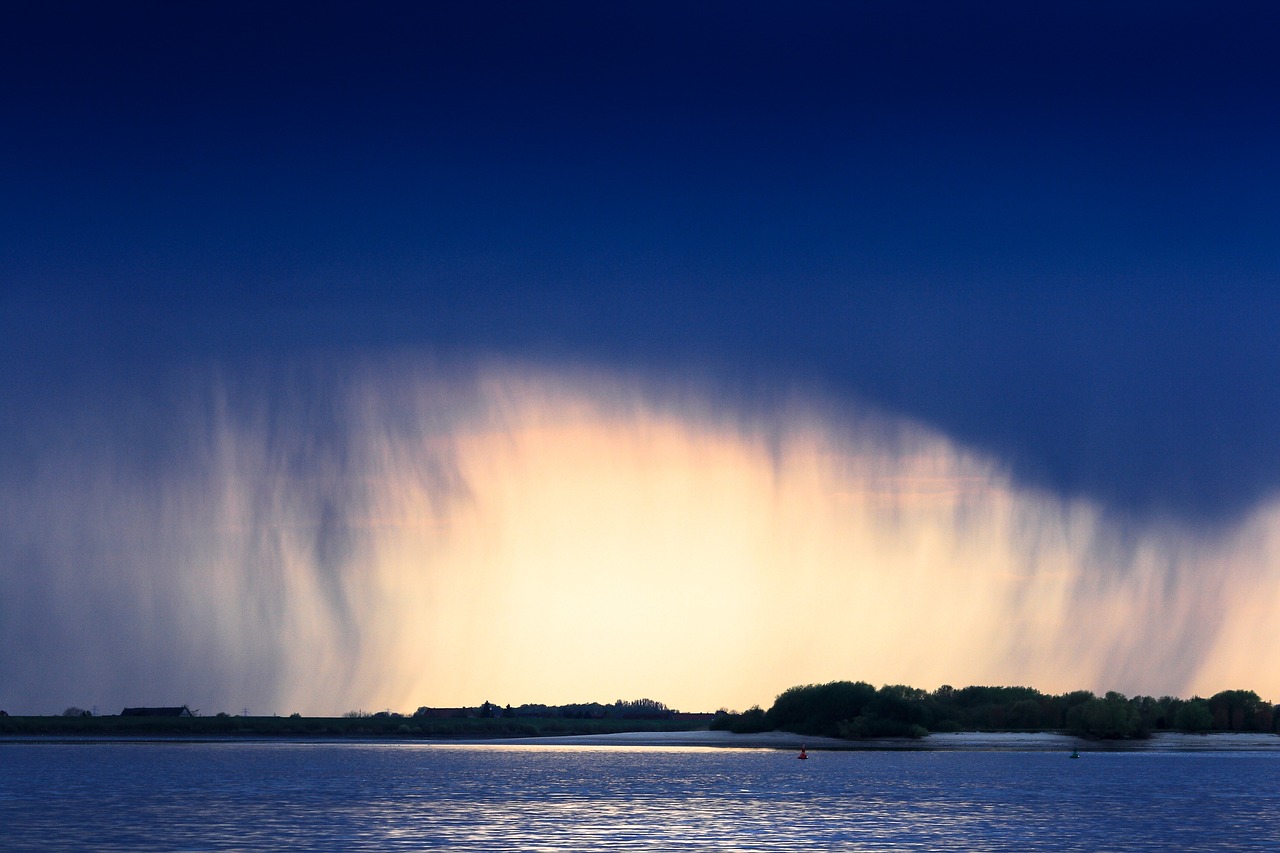
Existential Questions and Supernatural Beliefs
When we ponder the profound mysteries of life, we often find ourselves grappling with existential questions that challenge our understanding of existence, purpose, and the universe. In this quest for meaning, many turn to supernatural beliefs as a source of comfort and guidance. These beliefs can serve as a lifeline, providing answers to questions that seem too daunting or complex for our rational minds to tackle. For instance, consider the age-old questions: Why are we here? and What happens after we die? Supernatural beliefs often offer narratives that help individuals navigate these uncertainties, creating a framework in which they can find solace.
One of the most compelling aspects of supernatural beliefs is their ability to provide a sense of purpose. Many cultures have developed rich mythologies and religious doctrines that articulate a clear vision of life's meaning. For example, in various traditions, the idea of a higher power or divine plan can instill a sense of order in a chaotic world. This belief can be particularly comforting in times of crisis, as it suggests that there is a greater purpose behind our struggles and suffering. The philosophical implications of such beliefs are profound, as they encourage individuals to reflect on their own existence and their place within the cosmos.
Moreover, supernatural beliefs often address the fear of the unknown, especially regarding mortality. The notion of an afterlife or reincarnation can alleviate the anxiety associated with death, transforming it from a finality into a transition. This perspective allows individuals to view their lives as part of a larger continuum, fostering a sense of connection to something greater than themselves. In this way, supernatural beliefs become not just a source of comfort but also a philosophical lens through which to interpret the human experience.
Additionally, rituals associated with supernatural beliefs play a crucial role in reinforcing these existential narratives. Through communal practices such as prayer, meditation, or ceremonies, individuals can express their beliefs and connect with others who share their views. These rituals serve as a tangible reminder of the philosophical ideas underpinning their beliefs, creating a sense of belonging and community. The social aspect of these rituals cannot be overlooked, as they provide a support network that can be invaluable in times of existential doubt.
Ultimately, the interplay between existential questions and supernatural beliefs highlights a fundamental aspect of the human condition: the need for understanding and meaning in our lives. Whether through mythology, religious practice, or personal belief systems, humans have an innate desire to make sense of their existence. As we continue to explore these themes, it becomes evident that supernatural beliefs are not merely fanciful ideas but rather profound expressions of our quest for understanding in an often perplexing world.
- What are existential questions? Existential questions are deep inquiries into the nature of existence, purpose, and the universe, often dealing with themes like life, death, and meaning.
- How do supernatural beliefs help with existential questions? Supernatural beliefs provide narratives and frameworks that can offer comfort and answers to life's profound mysteries, helping individuals make sense of their experiences.
- What role do rituals play in supernatural beliefs? Rituals reinforce supernatural beliefs by fostering community connections and providing a means to express and explore philosophical ideas.
- Can supernatural beliefs affect mental health? Yes, they can provide comfort and a sense of purpose, but they can also lead to conflict or distress if they clash with personal experiences or scientific understanding.

The Role of Rituals
Rituals are fascinating constructs that serve as a bridge between the tangible and the intangible, the known and the unknown. They are not merely repetitive actions or ceremonies; rather, they encapsulate profound philosophical ideas and societal values. When we engage in rituals, we are often seeking to connect with something larger than ourselves, to find meaning in our existence, or to navigate the complexities of life. Think of rituals as the glue that binds individuals and communities, providing a sense of belonging amidst the chaos of the unknown.
At their core, rituals can be seen as a way to articulate our beliefs about the supernatural. Whether it's lighting a candle for a loved one, participating in a seasonal festival, or performing a rite of passage, these actions are imbued with significance. They allow us to express our hopes, fears, and desires in a structured manner. For instance, consider a wedding ceremony. It’s not just about two people getting married; it’s a ritual steeped in cultural history and philosophical implications about love, commitment, and community.
Moreover, rituals can serve as a means of psychological comfort. In times of uncertainty or distress, engaging in familiar rituals can provide a sense of stability and predictability. They act as anchors, reminding us that while life may be unpredictable, some things remain constant. This is particularly evident in mourning rituals. When we lose someone, the rituals surrounding death—such as funerals or memorials—help us process our grief and honor the deceased, allowing us to confront our own existential questions about mortality.
Rituals also foster community connections. They bring people together, creating shared experiences that strengthen bonds. For example, community festivals or religious ceremonies often involve collective participation, reinforcing a sense of unity among participants. This communal aspect of rituals highlights their philosophical significance: they remind us that we are not alone in our struggles and that our beliefs are often shared with others. In this way, rituals can act as a powerful tool for social cohesion, providing a sense of identity and belonging.
In addition to their social functions, rituals can also be seen as a form of self-expression. They allow individuals to convey their personal beliefs and values in a meaningful way. For example, artists often incorporate rituals into their work to explore themes of spirituality and existence. This intersection of art and ritual can lead to profound insights about the human condition, prompting us to reflect on our own beliefs and the nature of reality.
Ultimately, the role of rituals in our lives cannot be understated. They serve as a lens through which we can explore our beliefs about the supernatural and the philosophical questions that arise from them. By engaging in rituals, we not only express our understanding of the unknown but also connect with others who share similar beliefs. In a world that often feels chaotic and unpredictable, rituals provide a comforting framework that helps us navigate our existence.
- What is the significance of rituals in different cultures?
Rituals vary widely across cultures, often reflecting unique beliefs and values. They can serve to mark important life events, connect individuals to their heritage, and foster community. - How do rituals impact mental health?
Rituals can provide emotional support and stability during difficult times, helping individuals cope with stress and loss by creating a sense of normalcy and predictability. - Can rituals evolve over time?
Yes, rituals can change as societies evolve. New traditions can emerge, and existing rituals may adapt to reflect contemporary values and beliefs. - Are rituals purely religious?
No, while many rituals are religious in nature, secular rituals also exist, such as graduations, birthdays, and national holidays, which hold significance in people's lives.
Frequently Asked Questions
- What are supernatural phenomena?
Supernatural phenomena refer to events or experiences that cannot be explained by natural laws or scientific understanding. These can include ghost sightings, miracles, and other mystical occurrences that challenge our perception of reality.
- How do belief systems influence our understanding of the supernatural?
Belief systems shape how individuals interpret supernatural events. For example, someone raised in a culture that embraces spiritualism may view a ghostly encounter as a comforting sign, while a skeptic might dismiss it as mere coincidence. Our beliefs heavily color our experiences and interpretations.
- Why do different cultures have varying interpretations of supernatural events?
Cultural interpretations of the supernatural are influenced by historical context, societal values, and collective experiences. For instance, one culture may see a comet as an omen, while another might regard it as a natural phenomenon. These interpretations reflect unique philosophical perspectives and communal beliefs.
- What role does mythology play in understanding the supernatural?
Mythology serves as a framework for interpreting supernatural events. It provides narratives that convey moral lessons and societal values, helping individuals make sense of their experiences. Myths often reflect the philosophical beliefs of cultures regarding existence, morality, and the human condition.
- Can belief in the supernatural impact mental health?
Yes, belief in the supernatural can have both positive and negative effects on mental health. For some, it offers comfort and a sense of belonging, while for others, it may lead to anxiety or fear of the unknown. Understanding these beliefs can be crucial in addressing mental health issues.
- What is the science vs. supernatural debate?
The science vs. supernatural debate centers around the conflict between empirical evidence and supernatural claims. While science relies on observable and testable phenomena, supernatural beliefs often stem from personal experiences and faith, raising philosophical questions about knowledge and understanding.
- What are the limits of human understanding regarding the supernatural?
The limits of human understanding suggest that some phenomena may remain beyond our comprehension. Accepting this can be both humbling and liberating, as it opens up a space for wonder and exploration of the unknown without the constraints of absolute certainty.
- How do supernatural beliefs help in the search for meaning?
Supernatural beliefs often provide answers to existential questions, offering comfort and a sense of purpose. They can help individuals navigate life’s uncertainties and foster a deeper connection to the universe and their community through shared beliefs and rituals.
- What is the significance of rituals in supernatural beliefs?
Rituals associated with supernatural beliefs serve as expressions of philosophical ideas and foster community connections. They can provide a structured way to engage with the unknown, creating a shared experience that reinforces cultural values and personal meaning.

















